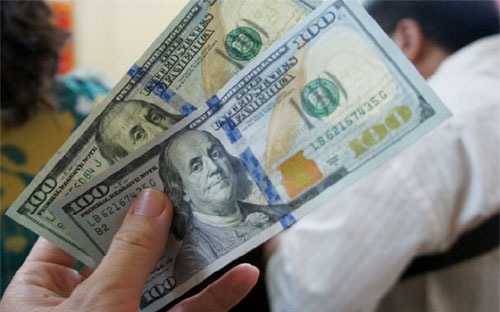|
Businesses fear dong depreciation will increase capital costs
In theory, every 1 percent dong
devaluation would lead to a 0.2 percent increase in the inflation rate.
 Businesses have been warned that they would have to borrow money at higher costs as the dong has lost one more percent of its value because of the dong/dollar exchange rate adjustment made by the State Bank on May 7. According to Dr. Nguyen Duc Do from the The higher demand for dollars and gold would lead to a higher dong deposit and lending interest rates. Also according to Do, when the dong loses one percent of its value against the dollar, the deposit interest rate would increase by 0.3-0.33 percentage points, while lending interest rates would increase by 0.35-0.4 percentage points. As such, with the projected 2 percent dong depreciation annually, the interest rate in This is bad news for Vietnamese businesses, which complain that the lending interest rates are unbearably high for them in a recession and low market demand. The government has asked the State Bank many times to ease the lending interest rates in order to help businesses more easily access bank loans. Nguyen Tri Hieu, a renowned banking expert, agrees that the one percent dong devaluation may affect the interest rate policy. Hieu noted he can see hard pressure placed on the dong/dollar exchange rate. “The worries about the high public debt and trade deficit may make people think that the dong would continue depreciating. And they would sell dong for dollar or gold to protect their assets,” he explained. “If this happens, commercial banks will have to raise the deposit interest rates so as to retain depositors,” he added. “Therefore, in theory, the dong depreciation would make it more difficult for the government to implement the plan to slash bank loan interest rates to help businesses step up their production,” Hieu noted. However, both Hieu and Do think the interest rates will still fall. There are some measures the State Bank and commercial banks can take to help ease bank loan interest rates. The State Bank can reduce the required compulsory reserves for deposits, cut operation costs and pump money into circulation through OMO (open market operation). “If macroeconomic indexes are good and the foreign exchange market are stable, easing bank loan interest rates is within reach,” he noted. TBKTVN |
Thứ Ba, 19 tháng 5, 2015
Đăng ký:
Đăng Nhận xét (Atom)
Không có nhận xét nào:
Đăng nhận xét